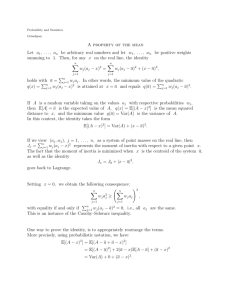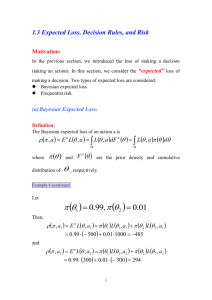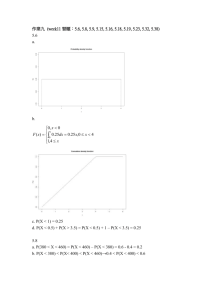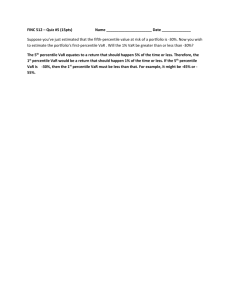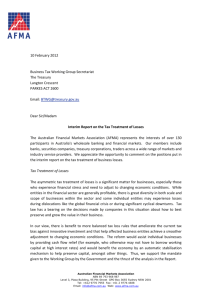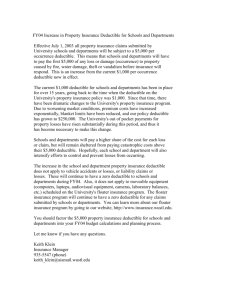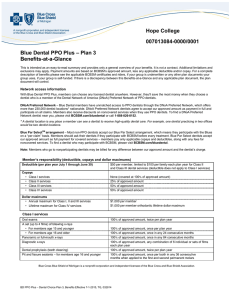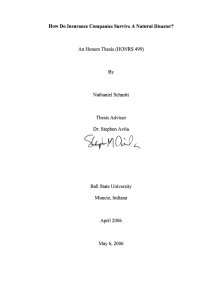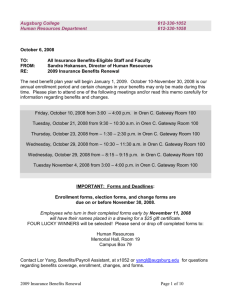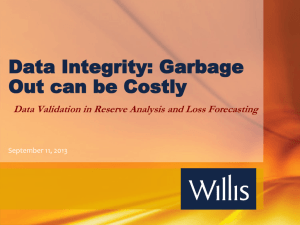Test 1
advertisement
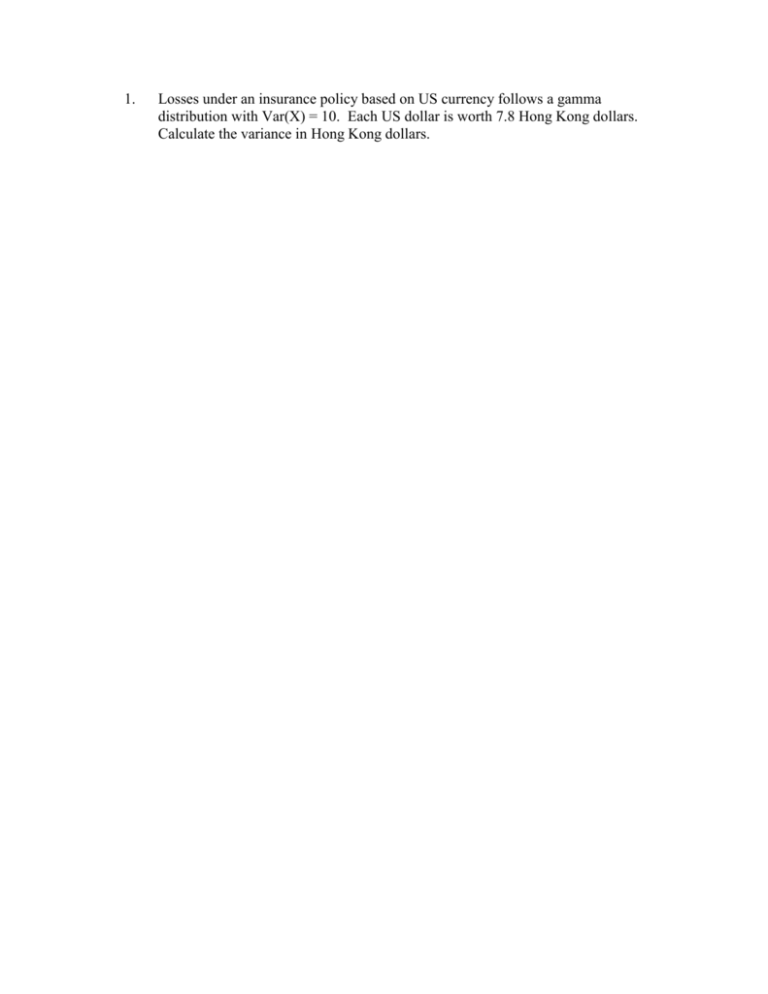
1. Losses under an insurance policy based on US currency follows a gamma distribution with Var(X) = 10. Each US dollar is worth 7.8 Hong Kong dollars. Calculate the variance in Hong Kong dollars. 2. You are given that losses follow a Pareto distribution with α = 3 and θ = 1000. The company implements a franchise deductible so that the E(YP) with the franchise deductible is 130% of E(X) without any deductible. Calculate the franchise deductible. 3. You are given that Fx(x) = 1 – (100/x)4 for x > 100. You are also given that fy(y) is: y 100 200 300 400 Calculate Var(Y) – Var(X). fy(y) 0.4 0.3 0.2 0.1 4. The number of dental claims per insured is distributed as a geometric distribution with β = 2. The amount of each dental claim is distributed as a Gamma distribution with α = 1 and θ = 100. Weller Dental Insurance Company has 1000 insureds. Assuming a normal distribution, calculate the 85th percentile of aggregate claims for Weller Dental. 5. Under an unmodified geometric distribution, Var(N) = 20. Under a zero-modified geometric distribution, Var(N) = 20.25. The parameter β is the same for both distributions. Calculate p0M. 6. Losses follow a uniform distribution over the range of 0 to 1000. Calculate the Loss Elimination Ratio if an ordinary deductible of 200 is applied. 7. For an insurance policy, the number of claims in a year is distributed: n 1 2 3 4 5 6 pn 1/21 2/21 3/21 4/21 5/21 6/21 The claim amount is distributed as: Amount 1 4 Probability 0.5 0.5 Calculate the net stop loss premium for coverage with an aggregate deductible of 20.50. 8. The random variable X is the number of dental claims in a year and is distributed as a gamma distribution given a parameter θ and a parameter α = 2. θ follows a poison distribution with a parameter λ. E(X) = 2.4. Calculate Var(X). 9. You have an empirical distribution with the following values: 1 1 2 2 2 5 5 6 6 20 Calculate the kurtosis of this distribution. 10. Losses in 2007 follow an exponential distribution with a mean of 1000. Losses on 2008 are subject to uniform inflation of 25%. An upper limit is imposed in 2008 so that the expected loss is the same as in 2007. Calculate the upper limit.
